Alrighty then, we’re gonna go ahead and start this off by giving ourselves a hug. But not just any hug, a ʚїɞ butterfly hug ʚїɞ !! go on, do it… it’s really quick and easy and you can trust me because if you didn’t know i have crushing depression and only really tend to gravitate towards “self care” practices that are in fact quick and easy.
…how was it!? that video is part of a youtube playlist of quick somatic practices (derived from Nkem Ndefo’s Resilience Toolkit) that you can do with yourself or someone else and if you’re feeling it, i do believe they’re all worth trying, to figure out what works for you so you can store it away in the lil self-soothing satchel in your brain for those overwhelming, uncomfortable, anxious moments or just because you feel like giving yourself a hug.
I first learnt about butterfly hugs and head holds and pillow screams and such at a 5 day grief retreat in the summer of 2021 and while i obviously don’t practice them as frequently as would benefit me, i remain moved by how good a simple, intentional self-touch can feel. Stop what ur doing and put ur hand on ur chest with a tiny bit of gusto and tell me you don’t feel better. What a relief to remember that if nothing else, we can hold ourselves.
The aforementioned retreat, called Weaving Grief, the Body & Transformative Justice was the brainchild of two absolute baddies from the UK; Farzana Khan, founder of Healing Justice London and Camille Sapara Barton, an artist, author, drug policy genius and embodiment practitioner (and the person talking you through the exercises in those videos which are part of a Grief Toolkit that they designed). The retreat was created to explore how embodied grief practices can support environmental advocacy and transformative justice in the UK context and it was one of the best and most holy things i have ever done not to mention the lifelong friends i made and you know what, i’m realising it’s actually really cool to make friends in your 30s when you know a bit more about who you are and what the fuck you offer and what the fuck you deserve.
I am immensely grateful to be able to call people like Farzana and Camille friends, always, and especially in moments like this, when their quiet life’s work lights the only path through. friends to truly feel it all with, to cacao ceremony with in like a not cringe way, to crawl to for the perfect herbal tincture when you’re stranded in a haunted polish palace and start to feel Very Unwell (thank you Cami). Camille’s research and innovation around grief and the body has moulded many moments and versions of myself and we have worked together regularly since 2018, via our work with misery, the mental health collective I help run. Crucially, their work has helped me understand that grief is not just something that lives within death but is in fact central to our experience of all life, of all love, of all the magic of sorrow and the sorrow of magic. That grief lives in the body and that we might not even need these english words to tend to it.
Camille’s work draws from and is part of a lineage of ancient African grief practices, more specifically those belonging to the Dagara tribe of Burkina Faso in West Africa. Dagara people see grief as a soul-cleansing rite that is conducted almost daily as a way of releasing tension caused by loss and restoring continuity within their relationships and this can happen through many creative interventions such as communal crying, drumming, alter worship, support of other community members and ancestor veneration. The teachings here are so wholly profound that I will allow you the gift of researching them deeply and in your own time rather than trying to paraphrase. but the heart of the way Dagara people approach grief is illuminated beautifully by Sobonfu Somé:
I believe the future of our world depends greatly on the manner in which we handle our grief. Positive expressions of our grief are healing. However, the lack of expression of our grief or its improper release is what is at the root of the general unhappiness and depression that people feel, all of which lead to war and crimes.
There are things we can do in society to help heal. We can begin by accepting our own and each other’s grief. We can have grief rooms and shrines in public spaces where people can go to grieve. One of my dreams is to turn places where there have been great and repetitious crimes into grief shrines where people can go to mourn. I imagine Memorial Day not as a day of barbecue, but a day to allow us to deal with our daily frictions, losses and grief as a community.
Communal grieving offers something that we cannot get when we grieve by ourselves. Through validation, acknowledgement and witnessing, communal grieving allows us to experience a level of healing that is deeply and profoundly freeing.
Approaching grief as a constant companion in this way and finding the spiritual language to actually be in conversation with it has brought great strength, ease and acceptance to my life in the last few years. Learning that all the grief I have felt, all my life, in this way and that, grief I resisted making home for despite having absolutely no choice in the matter, didn’t necessarily originate from me. That my body might be a conduit, a resting place, for a thousand wordless ancestral communications. A body-shaped switchboard. A hotline 4 ghosts. that grief, the great time traveller, the longest river of them all, might speak, at once, to the futures I’ll never see, and the futures my children will never live, and the children I will never have because of the futures they will never live, and the children taken too soon, and my past, and my past’s past, and your past’s past and your future’s future, and our shared now.
Grief is lonely because capitalism has made it so, but now I know we are never truly alone in it. Now I am able to ask myself questions like which part of my body is grief living in today, and now I know why I have had chronic back pain since my early teens and chronic depression since soon after that and now I know that grief is just a feeling, and to not feel it is to not feel love and to be full of it is to be full of love.
On a first hang in brooklyn’s beautiful and bountiful prospect park with my new friend and kindred spirit Kale Mays earlier this year, we saw a very large, dead moth and an hour later a perfectly intact dead bird lying face up in the grass. Both times the creatures seemingly just appeared at Kale’s bare feet, in places you don’t normally see dead creatures, and both times Kale instantly and quietly went about making their final resting places as safe and comfortable as possible. Later, they explained that this happens to them all the time. That their life has been one steeped in ceremony, ritual and grief. Another time on Brighton Beach, Kale told me that it is their job, while they are here (this time) to use these gifts of grief and ceremony to open portals to other realms and with the guidance of the ancestors, be a medicine man. what I have come to understand is that they are very, very good at this, in the best sense of the word medicine and the best sense of the word man. When they asked me what I think my job is I said ‘probably to be hot’ for balance but after they saw me dj once kale texted ‘it was v supportive to me that you invited grief into the space and asked us all to hold it collectively before breaking back into ecstasy which to me is more important and potent than any forced ceremony’ and when they called me a grief worker one time i pretended I already knew that’s what I am, that that’s what my life’s work is about.
But LET me tell you, despite all of this recent.. homecoming, i too have felt useless and guilty watching Palestine be ravaged from my phone. guilty at feeling overwhelmed by what I’m seeing. Of not wanting to see it. I too have felt confused and at times maddened by the influencer therapists and their 15 second manifestos for change: look away! / don’t look away! / look away for a bit and then look again! I have wondered, a few times, the value of grief work on a burning planet. i have felt shame that this is my offering, even though it’s the most honest offering i can give. I have had to keep reorienting myself to the decolonial truth that grief work is not only necessary and radical, but the key to the sustainability and momentum of our movement.
grief can be alchemizing, it can be paralysing, and it’s all valid!! making space for sadness and rage and numbness is not weak or passive. It never has been. I truly believe and know that. Feel ur fucking feelings, let them flow through you, and keep your eye on the prize. when you’re ready, let the voices of the oppressed be your guide. I think the idea is, if you let yourself feel the shit, you don’t get stuck in it. Everyone has their place in revolution and it can shift, year to year, day to day and it is all precious. I know all of that. But god, it’s hard to sit with it all, to sit with myself in any realm. It’s all too much.
As many muslim kids are, I was educated very early on in Palestinian liberation politics, the jagged teeth of settler colonialism, violent displacement and historic legacies of global islamophobia. i was also somehow born with a deep aversion to and mistrust of ‘because my religion said so’ of any kind, so i worked hard to understand the situation and advocate for palestine outside of a religious context which is actually extremely easy to do because this isn’t about religion, it’s about imperialism!!
Anti-semitism, islamophobia and intergenerational muslim and jewish trauma are weaponised to create this weak fucking smoke screen behind which capitalism and white power, control, colonialism and land grab must prevail above all else, including, as we are seeing so clearly at this stage of this decades long genocide, the wellbeing of israelis themselves.
After some years of learning, direct action and debate (when i still used to do that lol - there is absolutely no debate to be had here love), my organising took me on a trip to the west bank in 2008 when i was 19. I had never considered visiting palestine before but one time when i was doing some kinda protest calling for my university (oxford) to divest from israel (lol) some ugly man shouted at me about how can i even say that if i’ve never been there and while that is a fucking stupid argument i thought about going so no-one could say that shit to me again. I talked my way into joining a student delegation going from Goldsmith’s University in London to visit Al-Quds University in the West Bank which Goldsmiths had recently ‘twinned’ with in efforts to raise funds and resources for Al Quds and awareness about the barriers to education for Palestinian students more generally.
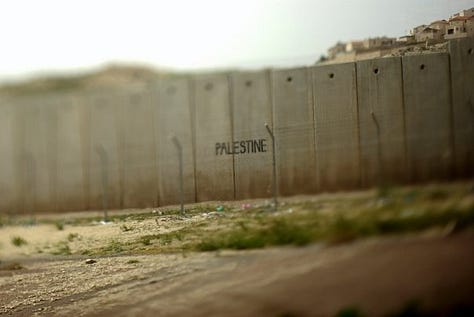
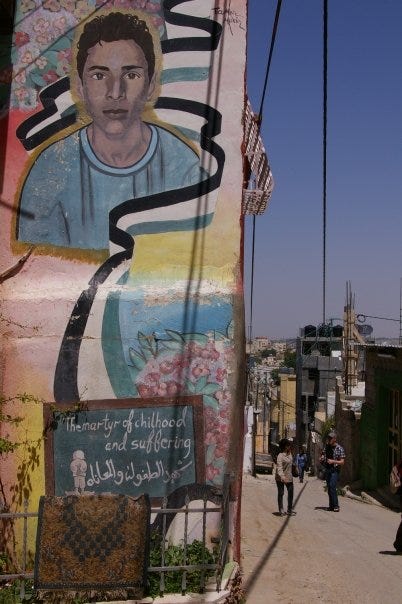
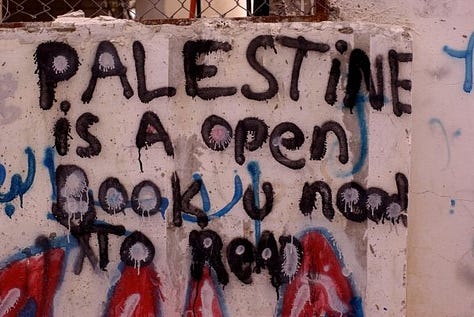
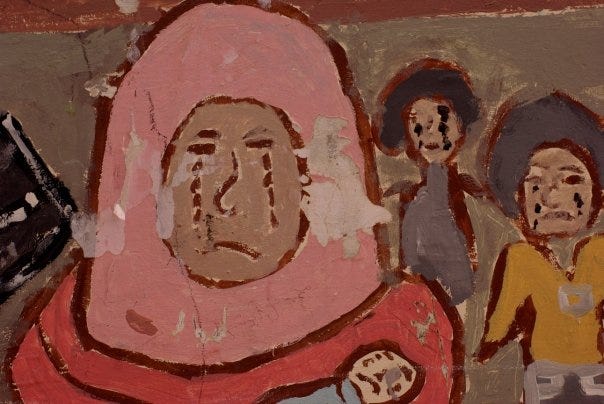
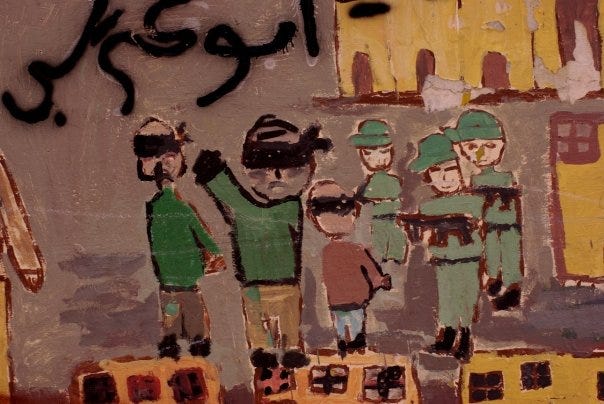
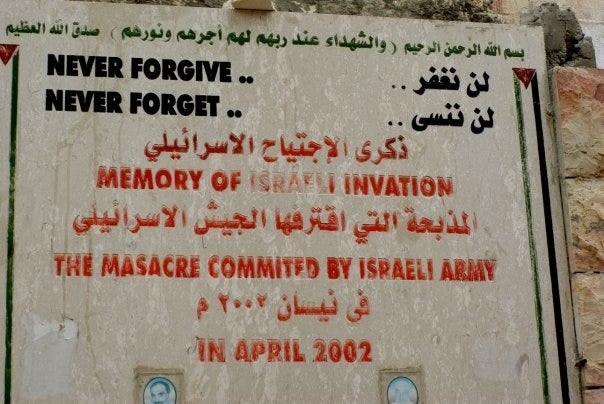
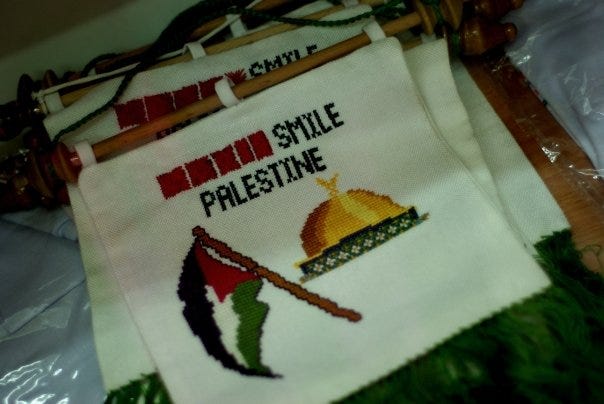
It was a mixed delegation, half young brown muslim people and half white anarchist dudebros. At Tel Aviv airport, we split into smaller, mixed groups at the border so as not to arouse suspicion. We had to pretend we were there to enjoy the sights and sounds of “israel!”, not to show solidarity with Palestine, obviously. We knew that israel is a deeply racist and islamophobic state, but it was still alarming to watch the brown people be systematically removed from each of the little groups and put into a pen where we were detained for hours, questioned and strip searched. I remember being surprised that the questions they asked were nonsensical, almost as though it wasn’t about gathering actual information as much as a display of power, manipulation, disorientation and intimidation, the lifeblood of israel.
it was an absolutely beautiful and absolutely harrowing trip. We travelled around much of the West Bank, guided by incredible palestinian hosts of all religions (we would not have been permitted entry to Gaza given the Israeli state’s blockade of the strip). The people there told us in no uncertain terms that the goal of the Israeli state is to raze what remains of palestine to the ground. That though they remain dedicated and hopeful, it feels like there is no chance of any kind of solution that includes Palestinian self-determination or return to stolen land. Settlers walked around with guns hanging out of their trousers, soldiers, flags, checkpoints, walls, everywhere.
Of all the photos i took on this trip, this one stayed with me. What you’re seeing here, is the old town of Hebron, the second largest Palestinian city in the west bank. It has some religious significance and has therefore been a particularly contested site, with israeli settlements being built in the center of the city as well as the outskirts. In some places, the settlements are built ontop of, or tower over the palestnian old city, and as a result, the settlers have taken to throwing their rubbish and other stuff, down into the Palestinian part of the city, dirtying it and injuring people. Grates were constructed as a safety precaution by the local Palestinians, but the trash and debris continued to come and come, blocking out all natural light in some parts of Palestinian Hebron. Let that be a clear fucking metaphor about what has been going on here for any of you who are confused, okay?
I feel so fucking distraught that any of this was ever allowed to happen. I am so angry at the levels of manipulation, the blatant lies, the enormous gaslighting project that has now allowed the so-called beheading of babies to become the internationally accepted humanitarian line that must not be crossed, as if the IDF has not been murdering babies routinely and mercilessly since its creation. As if no babies were harmed in the creation of israel. this has always been ethnic cleansing, it has always been genocide, and it wasn’t even well hidden. shame.
I feel bereft at the way Black and brown life is systematically devalued and the way trauma cycles. the way history repeats itself. At the way hurt people, hurt people and even if they don’t, how white supremacist capitalism will hurt everyone anyway. And i value grief work as a tool of disruption of these cycles. As a soft place to feel through, parse apart and arrive steadfast at justice.
In an online grief space i went to a few days ago organised by SiQ, a new friend of mine, Jupi, who writes the brilliant
unmuted themselves during the sharing circle to ask everyone and the heavens the following questions. I felt moved and held and excited and with permission share them with you now:⁃what does stopping a bomb look like? There are humans operating the technology. We are human… the systems are not impenetrable
⁃Divestment. What do intentional systems of trade, bartering, and bargaining look like in our various landscapes?
⁃We need mass efforts toward the archival of current and previously occupied populations. This is paramount. Instagram, not even your finsta or the app formerly known as twitter can be considered archives. They can be essentially erased. We need to work together to develop physical hard drives of the cultures’ struggles and futures of us all. Tech has made eradicating history swift, it doesn’t take a generation-long phase out anymore
⁃How can we practice organizing without to internet? What are ancient forms of communication that we can talk into? Can we just send more letters? Can we slow down? Can we use intuition as a revolutionary form of communication? Can we use nature?
⁃How do we avoid this dwindling into a “25% of proceeds go to…” situation?
⁃How do we avoid the 501©3-ification of genocide?
⁃What is the healthy amount of consumption of bloodied media?
⁃How do we take care of each other?
A friend texted me to ask how we are supposed to ‘psychically integrate’ what’s happening. Unfortunately it wasn’t a rhetorical question so here is my answer:
it’s haaard isn’t it. i’ve been feeling so bereft recently, of answers, for myself or anything further afield! i have found myself making friends with a certain type of unknowing though, which has brought some ease into my life. there’s all this pressure isn’t there, to know stuff, to be the eldest daughter of an immigrant household, and sometimes we don’t know much of what we need, and maybe that’s a type of knowing we can make home in for a bit. or maybe not. but it’s okay to just not know, and find within that whatever comfort is on offer?
when i read your question i saw psychically as physically and i think there's probably some kind of answer in that? i stretched for the first time in a truly long time yesterday and as i got into child's pose i immediately started sobbing. it doesn't help that i was listening to sufjan steven's new album for his dead boyfriend but i still felt something stir in my body that had previously been untouchable. honestly, since then i've probably felt worse (!) but more in touch with the pain of now, and so in that way better. how are you relating with your body right now?
psychically... i don't think we can... integrate... how to integrate genocide... unimaginable cruelty... the unfolding of our ancestors nightmares… i don't know... maybe i think of it like a bed, like we don't have control over the whole, but we do what we can and then we try to make up the best, nicest, comfiest bed to rest in... we integrate while we sleep, day to day, right?... so where the bed is the body, we tend to it maybe. not in a like, free palestine by having a spa day kind of way, but more nurturing your own and only true resting place
go out of your way to smell something nice. i find smell so powerful, one of the only senses that can top the thought machine.... break through for a moment of something... else. what are your favourite smells? i like rainy floor (cement and woodland), orange blossom, linden flower, all rosey smells, all vanillaish smells, kind of any perfume if a woman is wearing a lot of it, honeysuckle, many soils, south asian/west indian curry that you can smell from outside someone's house, lilac
In their most recent newsletter,
wrote this, on hope:Hopelessness serves to aid the oppressors in their efforts to extinguish the spirit, vision and vigor of those resisting oppression. Oppressors rely on our hopelessness to stop us from taking action–they benefit from our paralysis, strategically investing in our despair in order to demoralize us away from envisioning a world beyond the grip of their power. There are countless videos of people in Gaza who, amidst unrelenting and intensifying bombardment, are using their last moments to pray. Unlike their oppressors, who bomb mercilessly and mock the plight of their victims both in mainstream media and in soulless parodies on TikTok, the Palestinian people have retained the integrity of their spirits. Colonized people have historically been guided towards organized religion as a way to defer liberation to the afterlife. At the same time, the uncompromising faithfulness of the Palestinian people demonstrates their resolute rejection of hopelessness. This in and of itself should serve as a blueprint for us in the West, who have been conditioned to worship money and productivity at the clear expense of our spiritual wellbeing.
I love this, but I’ll be honest, hope is not always my strong suit. I’m not sure what the politics of hope as a chronic depressive look like. It just does not - to say the least - always come naturally to me. And honestly i feel no shame around that. idk if hope or faith are always requirements for action. sometimes being awake is enough. and that’s not to say depression is inherently a hindrance to hope. not at all. we are depressed because we can see what could have been. because we care
I believe hopelessness should be honoured and made space for because it is rarely the whole story! Let your body usher you through the grief of liberation and if hopelessness is part of that, feel into it, follow it through the dark, for the meaning of life is on the other side, and yes, Palestine will be free.





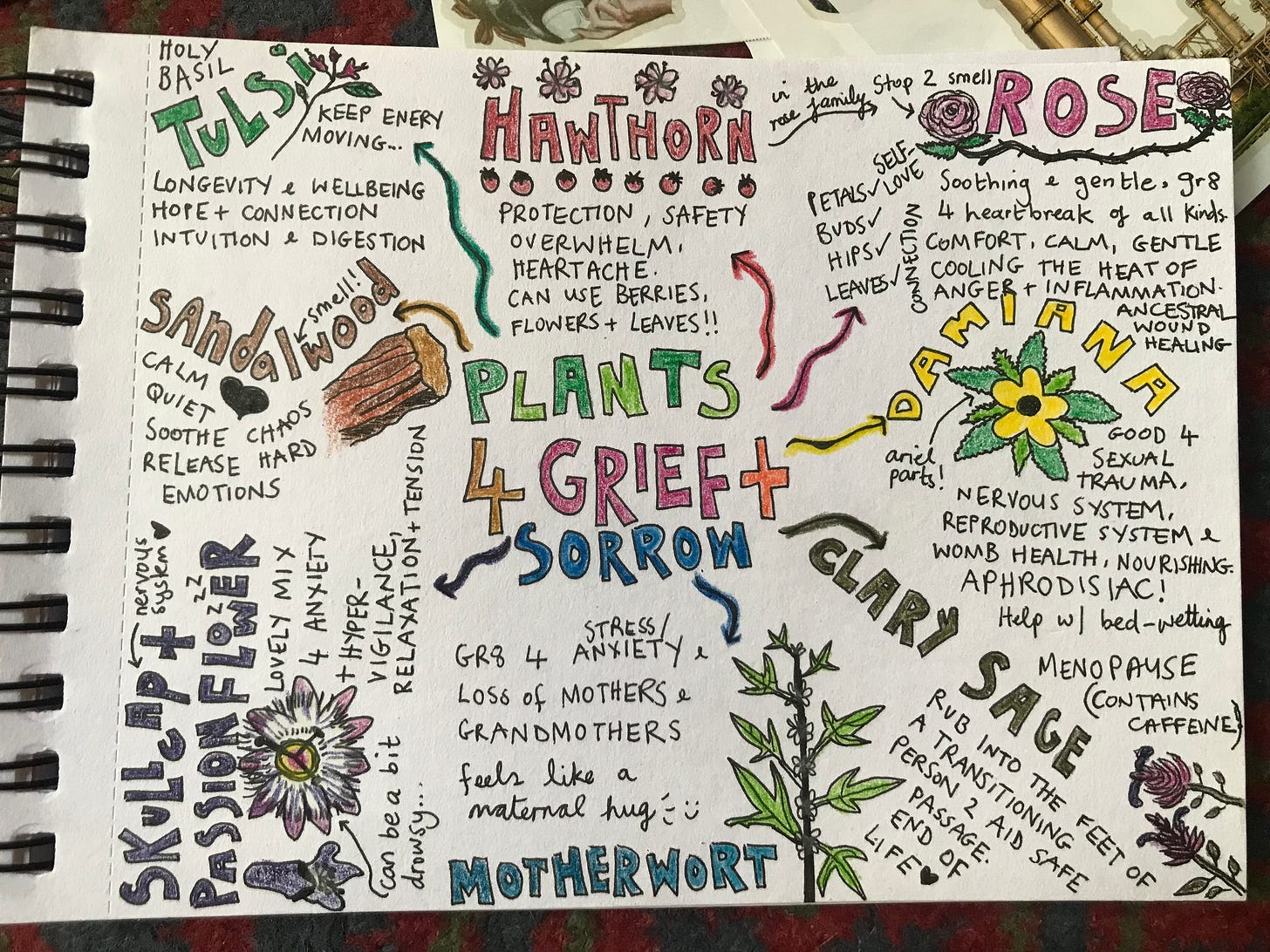
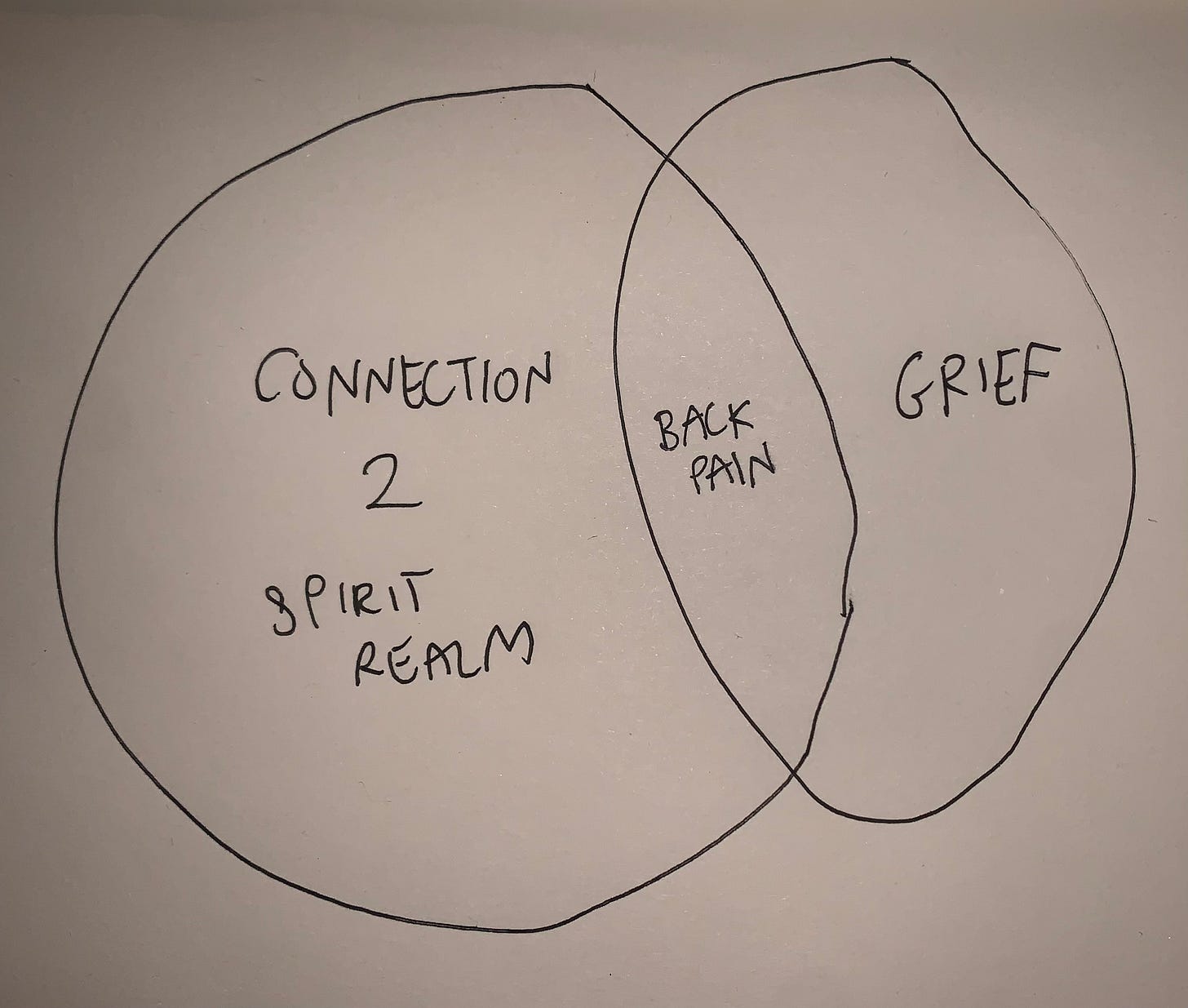
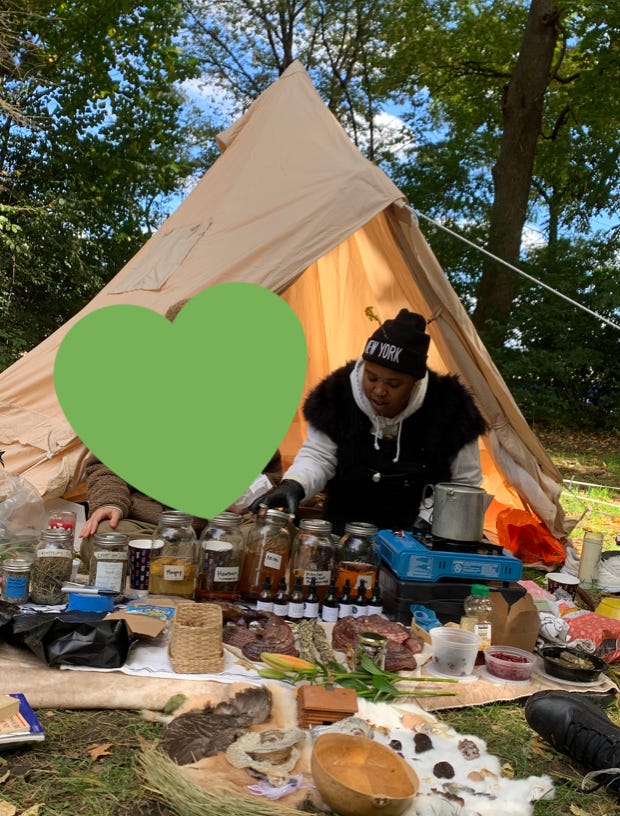
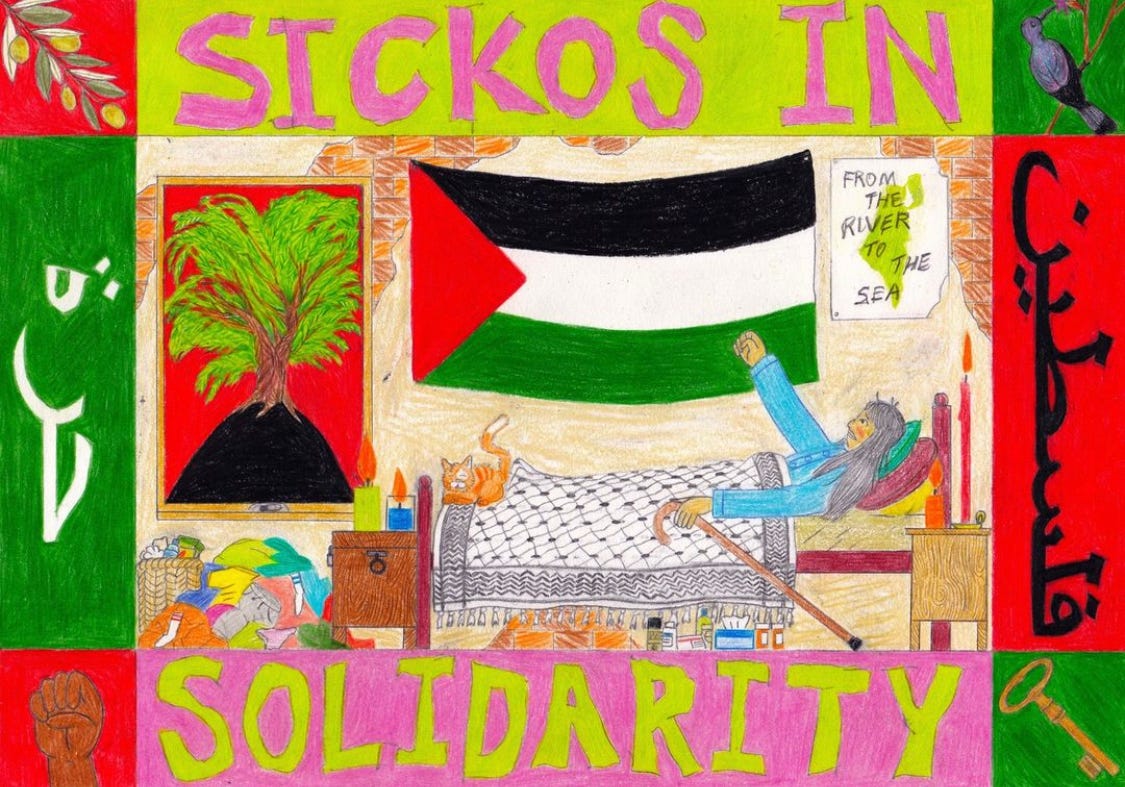

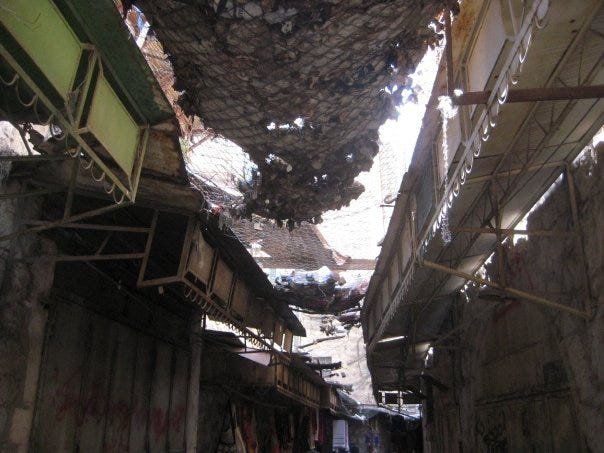


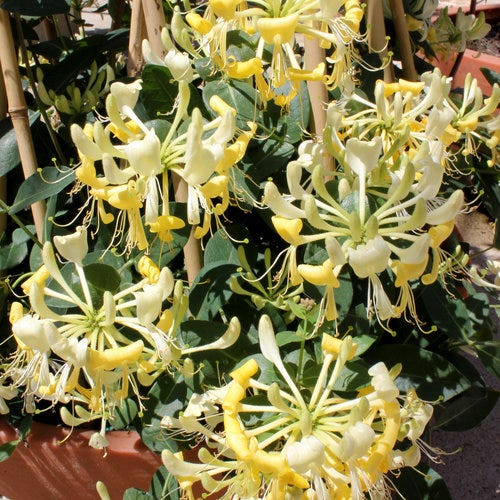
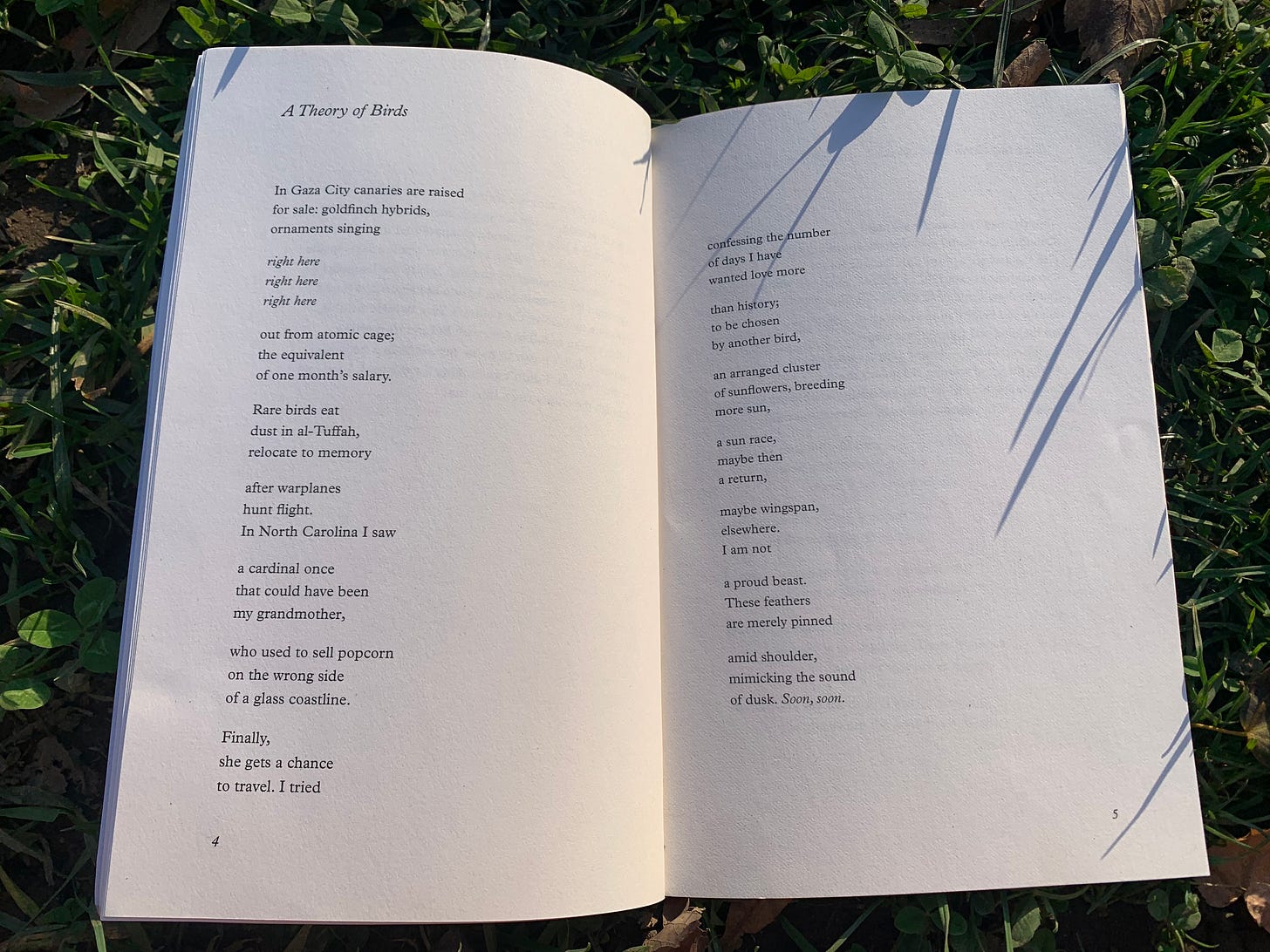
I read Alice Sparkly Kat's newsletter (her November horoscope) right before reading this, and I'm gonna quote a long piece of it below, because I think it responds beautifully what you wrote on hope in the last section of this newsletter. They make a differentiation between faith and hope, which I found particularly resonant.
"We fight for faith, not for fear. Fear makes us shrink, makes us suffer in silence and worry too much about things that we don't have control over. We acknowledge fear but we don't fight for it. We fight for faith, for the inevitable survivors whose lives and futures are inevitable enough to believe in.
I don't think that faith is the same as hope. There's a reality to faith. Time never stops and that's certain. People will always survive genocide. Life isn't guaranteed and, in the words of Audre Lorde, many of us were never meant to survive but, to really live, we have to live as though survival were guaranteed. We have to live as though we are going to triumph.
There's an inevitability to faith. I'm not sure that you need hope to develop vision but I'm sure that you need faith. To have faith, you simply need to remember that life is too powerful and too unruly for policy to permanently shape.
Let's demand a ceasefire on the armageddon that our fear fools us into thinking is inevitable. Let's do it with the faith that life will continue to survive after all of the armageddons that imperialism tries to narrate as meaningful."
If you wanna look at the original : https://www.alicesparklykat.com/articles/477/November_2023_Horoscopes/
And also, thank you for this piece. <3
🌹🌹🌹